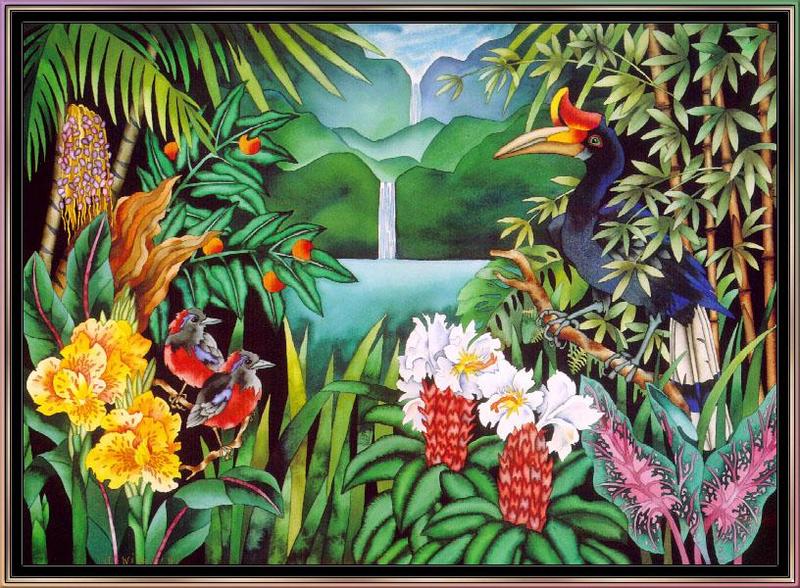|
| Query: bird | Result: 2968th of 32683 | |
[Animal Art] Rhinoceros Hornbill (Buceros rhinoceros) <!--코뿔새-->
| Subject: | [Animal Art] Rhinoceros Hornbill (Buceros rhinoceros)
| |

| Resolution: 816x600
File Size: 136047 Bytes
Upload Date: 2005:03:11 19:11:34
|
From: Richardson
Subject: Rainforest for the Children - Wise02-sj.jpg -- Rhinoceros Hornbill
Newsgroups: alt.binaries.pictures.artpics
Date: Wed, 31 Jan 2001 12:53:32 GMT
"What is a tropical rainforest?"
"Sometimes called a jungle, a tropical rainforest is a dense green web of plants and animals found along the equator. The most complex and unchanging of all the earth's ecosystems, a tropical rainforest is the greatest single reservoir of plants and animals on earth."
Rhinoceros Hornbill (Buceros rhinoceros)
|
Comments |
|---|
| | Guest |
|
Rhinoceros Hornbill (Buceros rhinoceros)
--------------------------------------------------------------------------------
Family: BUCEROTIDAE
Hornbills are large, black or brown, and white, mainly arboreal birds, with long, heavy bills. Many species have large protuberant casques on top of the bill which may be gaudily coloured. Hornbills are found throughout Africa and tropical Asia, and throughout Indonesia to New Guinea. They eat fruit and insects and have harsh, penetrating calls.
The nesting habits of the family are interesting. The incubating females are usually sealed into tree hole nests with mud, leaving only a small aperture through which food can be passed by the male. When the young are hatched the female breaks out but reseals the nest entrance again until the young are ready to leave. Ten species of hornbill occur in Sumatra, eight in Borneo, but only three are found in Java.
Description: Very large (110 cm), black and white hornbill with large yellow and red bill and casque, and diagnostic white tail with a broad black band. Head, back, wings, and breast black; belly and thighs white.
Iris-white to blue in females, red in males; skin around eyes-dark grey; bill yellow with red base and surmounted by upturned spiralling casque; feet-greenish grey.
Voice: Loud, harsh roar kronnk, repeated by either sex and often given in chorus with one partner slightly later than the other. Sharper gak note given just before flight.
Range: SE Asia, Malay Peninsula, Sumatra, Borneo, Borneo, and Java. Absent from Bali.
Distribution and Status: This species is found in low densities in most large blocks of lowland and hill forest. It is very conspicuous because of its size, habits, and call but in fact is generally present at low density.
Habits: Pairs inhabit the crowns of the tallest trees. A regular visitor to fruiting giant strangling figs. Gives a dramatic whooshing sound of wing-beats in flight. |
| | Guest |
|
| Rhinoceros Hornbill (Buceros rhinoceros) |
^o^
Animal Pictures Archive for smart phones
^o^
|
|
|